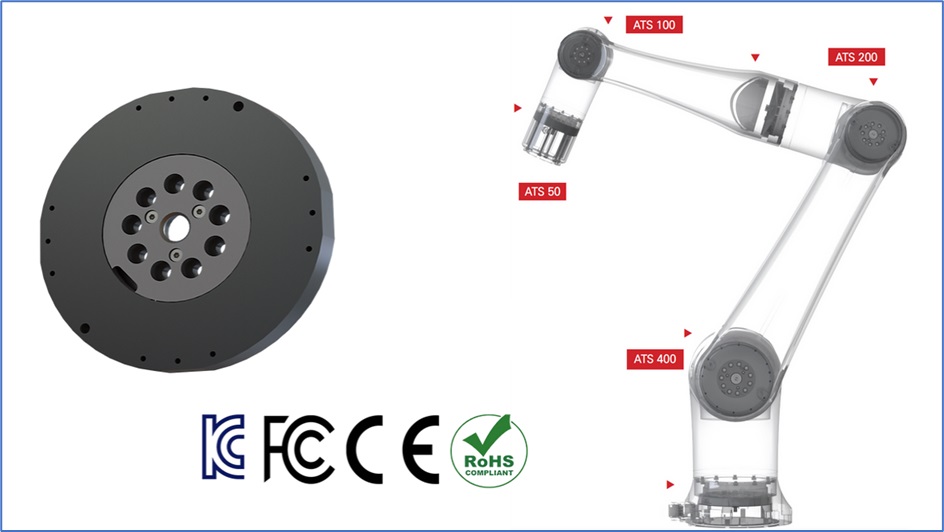AIDIN ROBOTICS Inc. is an evolving robotics company founded on innovation and technological excellence, emerging from research by Sungkyunkwan University’s mechanical engineering department. The company aims to create a future where people and robots safely coexist and collaborate. The development of its advanced robot joint torque sensor technologies, producing field sensing expertise, has accumulated since 1995.
With their expertise, AIDIN ROBOTICS confidently navigates human-robot interaction, creating intelligent systems that accurately identify and respond to their environment. Committed to innovation and technological breakthroughs, AIDIN ROBOTICS aims to shape a future where robotics and human collaboration in the workplace become a reality.
Robot Joint Torque Sensors
Robot joint torque sensors are essential components in robotic systems, providing precise measurements of the rotational forces applied to joints. These sensors enable robots to perform tasks with greater accuracy, control, and adaptability.
How They Work
Torque sensor typically operate on the principle of strain gauges. These gauges are bonded to a flexible element within the sensor. When a torque is applied to the joint, the element deforms, causing the strain gauges to change resistance. This change in resistance is then measured and converted into a corresponding torque value.
However, The joint torque sensor from AIDIN ROBOTICS is based on capacitance. While traditional capacitance techniques had drawbacks in terms of stiffness and measurement sensitivity, AIDIN ROBOTICS successfully implemented high precision comparable to strain gauge methods by modifying the electrode structure based on the fringe effect, thereby reducing costs.
Applications
Torque sensors are widely used in various robotic applications, including:
- Industrial Automation: For tasks such as assembly, welding, and material handling, where precise control of joint forces is crucial.
- Human-Robot Interaction: To ensure safe and collaborative interactions between robots and humans, preventing excessive forces that could cause injury.
- Research and Development: In robotics research, torque sensors are used to study the dynamics of robotic systems and develop new control algorithms.
- Medical Robotics: For surgical robots, torque sensors help in delicate procedures by providing feedback on the forces applied to tissues.
Advantage of AIDIN’s Torque Sensors
There are several types of torque sensors used in robotics, each with its own advantages and limitations:
- Collision Detection: The cobot can immediately measure and control the force applied when it collides with a person or an object, enabling it to perform collision detection and friction compensation effectively.
- Environmental resistance: It is manufactured in a very compact and slim size, making it easy to apply in robots. It has high environmental resistance, passed the 4kV discharge test, and has obtained various international certifications, including KC, CE, FC, and RoHS.
If you are looking for robot joint torque sensors, you can find it on AIDIN ROBOTICS
Click here to contact AIDIN ROBOTICS



